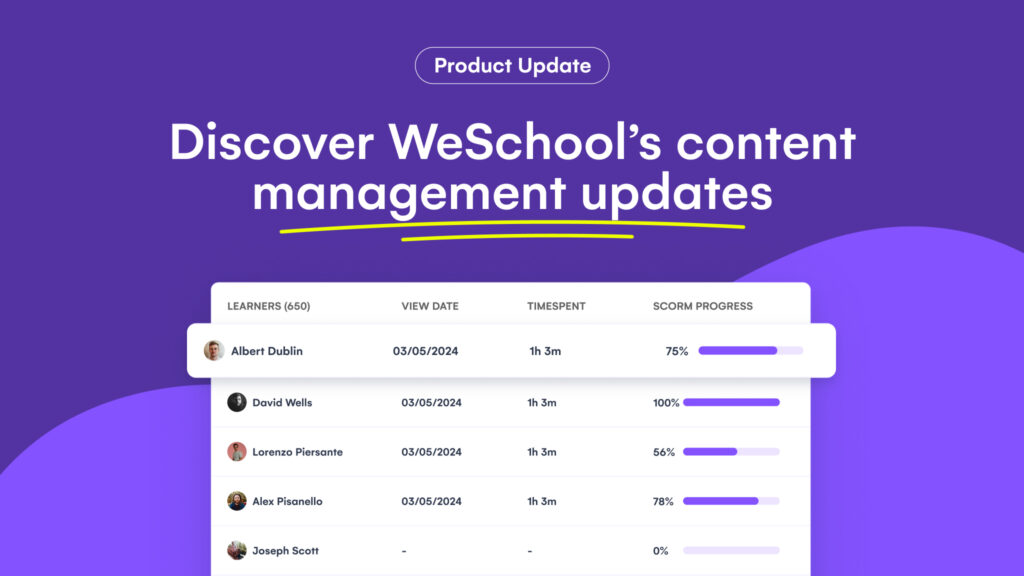Overwhelmed by ambitious hiring KPIs? Merita Ramadani’s success story of hiring 245 in just a year gives you an inside scoop into the secrets behind meeting OKRs while supporting sustainable company growth.
What you’ll learn:
- Strategies for scaling talent acquisition: learn about the importance of building a talent acquisition team before deep-diving into the hiring process and the key traits to look for when building your hiring team.
- Ways to empower team members during hypergrowth: discover the value of providing support and opportunities for employee development during the process.
- How to get teams to operate smoothly as it grows: learn how to set up processes that support a streamlined work environment.
In an ideal world, if you’re presented with a daunting OKR% growth goal, you’d have the time to bring new people in first, and then work together as a larger team later. This will allow you to deep-dive into the requirements for the hiring process.
Basically, it’s the time to plan, collaborate with the finance team, and create specific formulas to determine talent acquisition needs.
Pro tip: Foresee hiring requirements and consider the hiring process before getting started.
Growing is all about trial and error, which is why no one in the team should be afraid of doing things.
People teams need to run like a product team because every decision that people teams make will affect the entire business.
Things are constantly changing in startups. One day you need to hire 10 people. The next day you realize the numbers weren’t right and you need to hire 50. So instead, people should focus on the goal, even if it changes.
Pro tip: Hire hands-on, natural leaders who are output and goal driven.
As teams grow, managerial responsibilities are naturally going to grow too. One of Merita’s initiatives was to introduce an onboarding buddy program to ensure that new hires felt supported and connected with their team members from different locations. The people that did well in the onboarding buddy program actually ended up being managers later on.
This helps everyone grow professionally, because not only are people focusing on getting their job done, but also on building a team and discussing what they’ve achieved so far.
Pro tip: Introduce schemes that both support new hires and empower existing ones to reassure the benefits of the team’s growth.
Training managers earlier on and finding ways to support them to manage team members more effectively will have a direct impact on the productivity and wellbeing of all team members – so doing it earlier is better in the long run.
A smart way to roll out training is to do so as if it were a product launch: through phases. This way different pieces of training can be tested in smaller cohorts before the company-wide rollout. It’s also a more effective way of gathering feedback from employees and less time-intense because training can happen in rotation.
Pro tip: Consider training managers earlier on to ensure both growing teams and new managers are adequately supported.
Although there are fundamental values that remain from day one, culture is in constant growth. There is not one person who owns culture. In fact, everyone owns it!
New hires will come with their own expertise, backgrounds and perspectives. With that said, it is likely that the needs of employees will change with new additions. For example, at Merita’s latest role, they realized that a lot of people had different expectations because different countries have different benefit set ups.
Pro tip: Set a flexible benefits approach that comprises a baseline of benefits alongside localized benefits to embrace cultural change.
One of Merita’s career approaches has been to seek out mentorships. In fact, she is now dedicated to giving back to the community herself. You can reach out to her personally through LinkedIn. And for those seeking some extra reading time, some of her book recommendations include:
- Scaling for Success by Brad Harris
- The Culture Map by Erin Meyer
- The Soul of Startups by Sophie Theen
- Redefining HR by Lars Schmidt
Pro tip: If you haven’t done something before, ask more experienced people what they would do. Gather three different possible solutions before choosing a direction.





Reviews